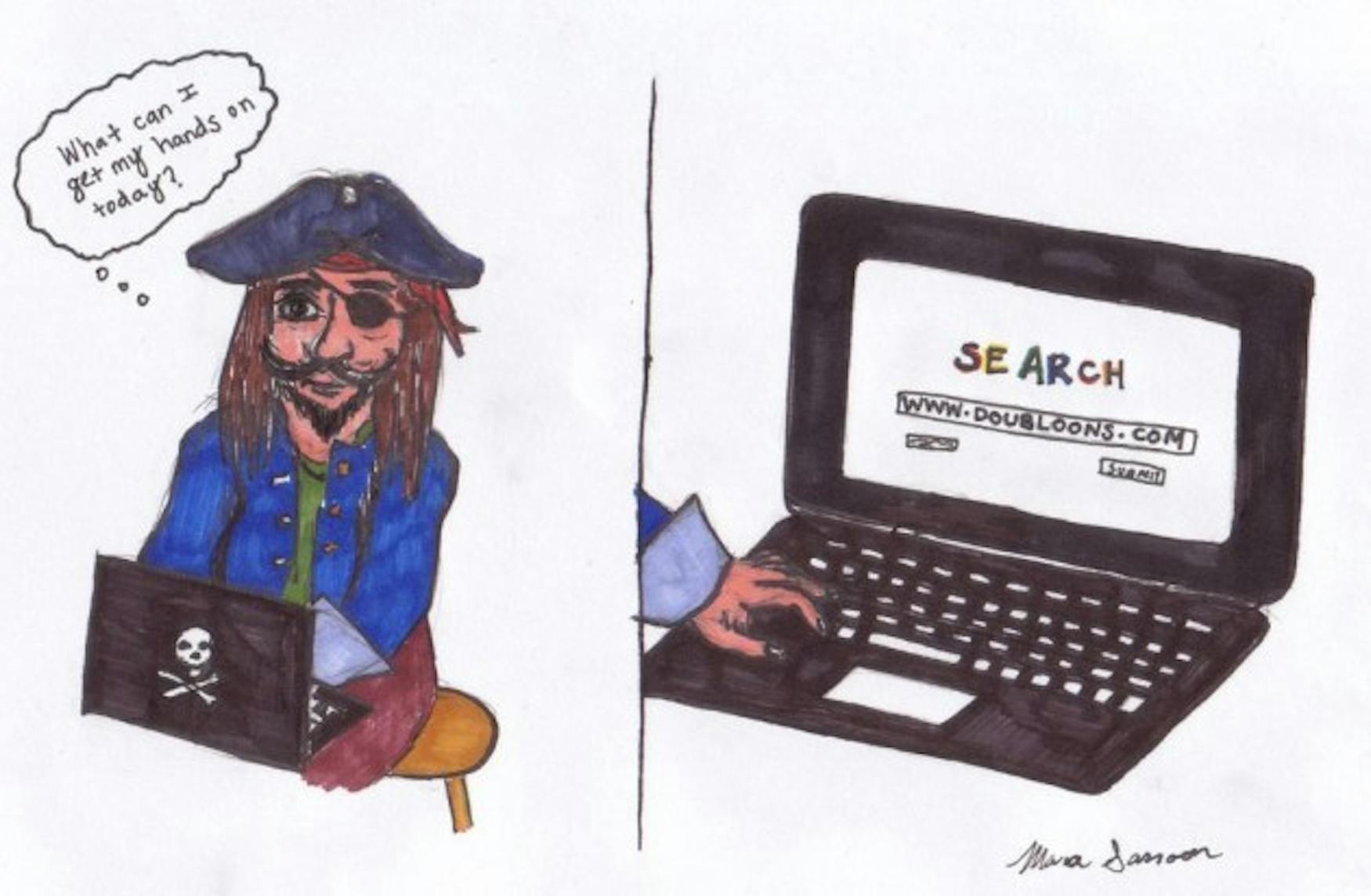Go beyond SOPA bill to stop piracy
By now, nearly everyone is familiar with the Stop Online Piracy Act, or as it's more commonly referred to, SOPA.
Just in case you've been under a rock, SOPA is a once-broadly favored bipartisan bill making its way through Congress that would lend powerful tools to copyright holders to curb digital piracy. The bill allows a copyright holder, through the U.S. Department of Justice, to, in essence, take sites off of the Internet that infringe on their copyright, as well as cut off ad revenue generated by the site.
According to one estimate by the nonprofit protest organizers Fight for the Future, over 115,000 websites participated in some form of protest against the bill last Wednesday, Jan. 18.
Most notably, Internet giants such as Wikipedia, Twitter, Google, Reddit and Tumblr either completely blacked out their sites or directed users to information on the now-infamous bill.
The protest proved successful, as both SOPA and its partner bill, the Protect Intellectual Property Act, have been shelved indefinitely in the protest's wake.
The number of supporters for the bill has quickly declined, and given its unpopularity during an election year, it seems likely that we won't hear again from the bills for some time. Unfortunately, the underlying issue the bills seek to address remains unresolved: Internet piracy is rampant, and the government—as well as affected copyright holders—will continue to struggle to stem the tide. Foreign websites in particular remain exceedingly difficult to police, and while efforts such as those that recently took down Megaupload and Megavideo have been successful, other similar sites will almost inevitably pop up in their places.
Regardless, several aspects of the bill make it clear that SOPA was not the solution. The bill would have made it far too easy for copyright holders, Internet service providers, search engines, payment processors and content providers to abuse it.
Copyright holders simply needed to send a single letter claiming they had a "good faith belief" that a site was infringing upon the law by posting copyrighted material, and the site would then effectively disappear from the Internet.
This all would take place without a court appointment, and it would be the alleged infringer's responsibility to prove his or her innocence.
Perhaps even more troubling was the bill's provision allowing Internet service providers and search engines to proactively black out content based, again, on nothing more than a "good faith belief" that the provider was posting copyrighted material.
Given that these same ISPs and search engines are also content providers (for example, Google owns Youtube, and Comcast has ownership of several cable networks as well as NBCUniversal), there is obvious incentive for abuse.
The bill further encourages this type of abuse by providing blanket immunity for ISPs against accusations of anticompetitive behavior.
Beyond the possibility of abuse, the bill's reach was also far too broad. If even just a portion of any given site contains infringing material, the entire domain name can face censorship. This means that users of that site, who didn't themselves violate any law, could one day find that any data they stored on a blacked-out site is irretrievably gone and their accounts are terminated. This type of collateral damage, which harms those who use these services legally, is simply unacceptable.
There may seem to be a lot of problems with SOPA, but what I've listed here are only some of the most obvious dangers the law poses—this list certainly isn't exhaustive.
It's clear that SOPA needs to be seriously retooled for it to be palatable, or even acceptable.
But although SOPA isn't a viable solution, Internet piracy remains a problem. In order to combat it successfully, there need to be some new enforcement mechanisms. It's difficult to estimate just how much money and how many jobs the entertainment industry has lost due to piracy, but the impact is significant.
Those who choose to pirate not only hurt the copyright holders, artists and those involved in producing the works, but they also harm other consumers—people who buy the same material legally and who are forced to pay more for each of their legitimate purchases so that the property owners can recoup the losses from piracy.
It's important to remember, even as we recognize SOPA's faults, that the principle behind the law isn't wrong: Piracy is illegal, and it's also immoral.
While many pirates—and some of SOPA's most vocal critics—choose to steal as a sort of political message or out of some sense of justice, theft is theft.
If you believe that copyright holders make too much money or don't sell their products in a convenient way, you can choose not to purchase them. If enough people choose to abstain from buying a certain product, perhaps the sales model for that product will change. But stealing isn't the answer.
We as consumers have a duty to abide by the law and purchase our entertainment legally and legitimately—not just to avoid another SOPA, but because it's the right thing to do.
We should celebrate the tabling of this legislation, but we should also remember that it was designed to address a legitimate issue and that the issue still remains unresolved.



Please note All comments are eligible for publication in The Justice.